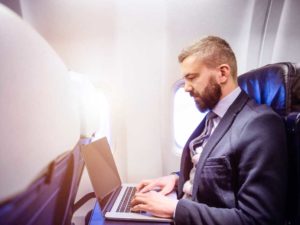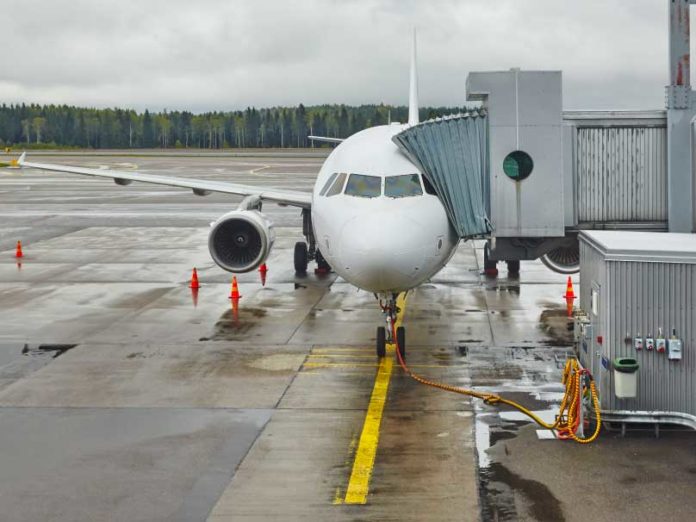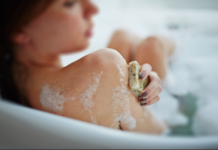Air travel is either a great privilege or the bane of our modern era, depending on your point of view. In a matter of hours, you can transport yourself to nearly anywhere in the world. Sure there are hassles, long lines, and lots of extra costs. However, it’s statistically a very safe way to travel. However, there is one hazard that many people forget: germs. With a little vigilance, you can guard against germs–and possibly serious illness–when you fly.
Mind Your Hands and What They Touch
You can find many articles with checklists and tips for avoiding germs. According to this list from Cheat Sheet, top germ sources include check-in kiosks, baggage carts, and security bins. Basically, anything that lots of people touch is covered in germs. If you pay attention, you don’t have to touch things like ‘touch-screens’ directly with fingertips. For example, use your knuckle on touch-screens, as it’s less likely to transfer germs to your eye and nose. If possible, avoid touching luggage carts and the ropes that make up the waiting lines.
Sometimes touching handles and objects is unavoidable. Your hands can pick up the germs, so you can take care not to transfer them into your body. Remember to wash your hands often with soap and water.
The most likely paths into the body, resulting in you getting sick, are your eyes, nose and mouth. Keep fingers away. If you get an itch, use a tissue or just allow a light scratch with your wrist or sleeve. Visualize the transfer from germy surfaces to stay mindful not to touch your face.
Don’t Forget Your Feet
The security check is another location that puts you at risk of germs. This article on WebMD cautions that you should always wear socks when you travel. When you remove your shoes, your feet emerge a little sweaty, as do everyone else’s. This slight transfer of moisture can make it easier to pick up a fungal infection or other germs.
Restrooms
In the airport and on the plane, one of the most germ-infested places is the restroom. Door handles, seats, lids, and even flat surfaces are all likely covered with germs from the constant flow of passengers.
Touch as little as possible, and wash your hands thoroughly with soap and water. Today, many public facilities like airports have touch-free operation. Make it a game; see if you can make it all the way in and out without touching anything directly except soap and water.
Please Remain in Your Seat

Back at your seat, stay aware of germ sources. The seat itself is often overlooked as places that are covered with germs. Many airlines no longer offer pillows and blankets anyway so, if possible, bring your own travel pillow and cover-up.
The seat pocket is a mysterious container for whatever nasty contributions other travelers have made since the last time cleaning. Many travelers slide their own materials into these when they start their trip. Try to keep your things on the top of the heap. Gravity tends to pull the debris to the bottom of the pocket.
Stay Hydrated
The air inside a pressurized cabin is artificially controlled and usually very dry. WebMD recommends that you stay hydrated. I agree! Your sinuses, nose and mouth contain complex systems for defending you from germs, but they require moisture to operate properly.
There are added benefits to taking in adequate water, however you will likely need to use the bathroom! Providing you’re cautious about the surfaces you touch along the way, the removal of waste fluids and a brief opportunity to walk in the cabin have added benefits. You’ll protect yourself from other health problems like bladder infections and deep vein thrombosis, or DVT.
Boost Your Immune System
It’s a good idea to protect your immunity every day of the year, but especially when you travel. You will inevitably come in contact with some kind of germs–possibly viral or bacterial–so protect yourself in advance. Eat an immune-boosting diet and consider a supplement like Diamond Nutritionals Immune Cell Support Formula.
Adequate rest also benefits your immune system. Your body will more easily get sick when you’re tired and run down. Your body will be better prepared to defend you when you’ve had a healthy amount of sleep and rest.
Watch for Sick People
So far, these tips have been cautioning you to avoid common germs that are transferred on surfaces. You must also protect yourself from germs that come from people who are currently sick. You will increase your chances of getting sick by sitting next to the fresh, concentrated exposure to their germs.
If you notice you have been seated near a person who is visibly sick, you may alert the flight attendant and request, if possible, to move to another seat. Likewise, avoid traveling when you are sick. You risk infecting others! Plus, the dry and pressurized air of the cabin will bring added discomfort.
With these tips and a little diligence, you can protect yourself from germs when you travel by air. Staying healthy is the first step in having an enjoyable trip.








